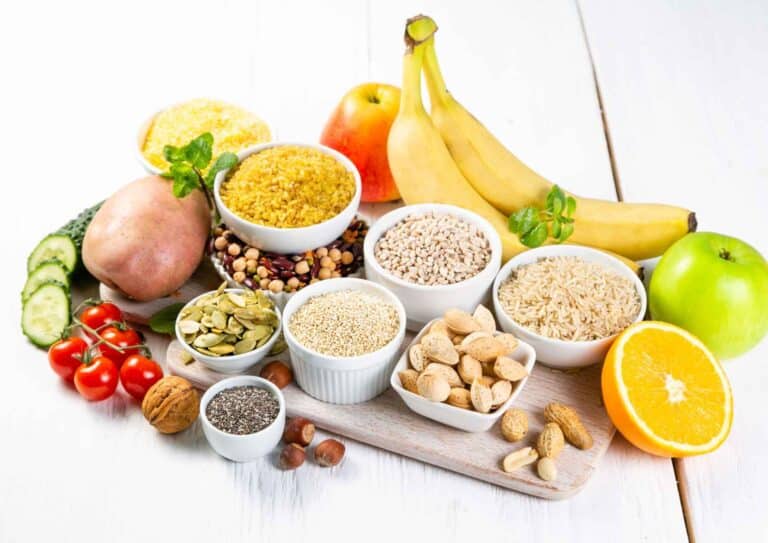Is Breakfast the Most Important Meal of the Day?

“Is breakfast the most important meal of the day?” It’s one of the most common questions I get asked — and one of the most misunderstood. Whether it’s a client trying to lose weight, an athlete training at sunrise, or a busy professional skipping meals to save time, the debate around breakfast is alive and well.
As an Accredited Clinical Nutritionist, Sports Nutritionist, and Weight Loss Nutritionist based in Sydney, I’ve worked with hundreds of individuals to optimise their nutrition. And I can tell you: the answer isn’t simple. Nutrition is never black and white. It’s contextual, goal-driven, and deeply personal.
In this article, I’ll unpack the science behind breakfast, explore its impact on metabolism, performance, appetite regulation, and hormonal health, and share how I tailor breakfast strategies to suit individual needs. If you’ve ever wondered, “Is breakfast the most important meal of the day?” — this article will give you clarity, backed by evidence and clinical experience.

Is Breakfast the Most Important Meal of the Day? What you will learn:
Where Did the Breakfast Hype Come From?
The phrase “breakfast is the most important meal of the day” didn’t originate in clinical nutrition — it came from marketing. In the early 20th century, cereal companies like Kellogg’s and Post began promoting breakfast as essential for health. Their campaigns were wildly successful, embedding the idea into public consciousness.
Later, observational studies seemed to support the claim. People who ate breakfast regularly tended to have lower BMIs, better blood sugar control, and healthier overall diets. But these studies were correlational — not causal. Breakfast eaters may also be more likely to exercise, sleep well, and avoid smoking. That doesn’t mean breakfast itself is the reason.
As a clinical nutritionist, I always ask: what’s the context? What’s the goal? Before we decide whether breakfast is the most important meal of the day, we need to understand the individual.
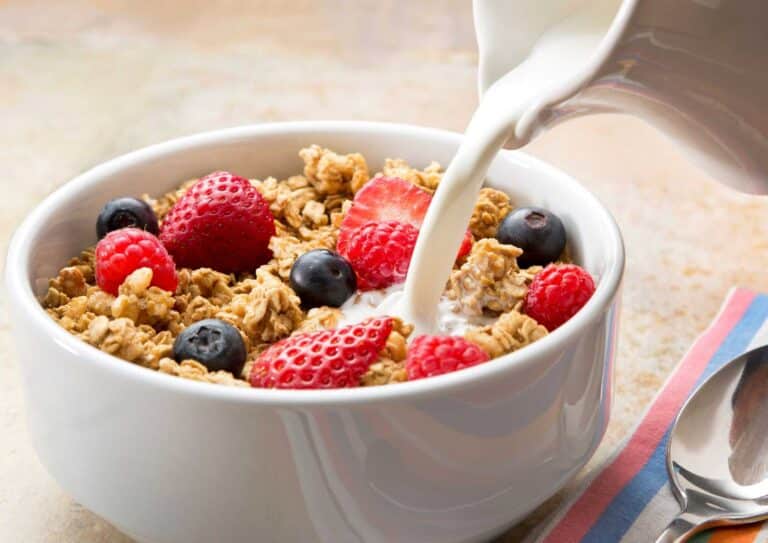
What the Research Really Says
Let’s move past the headlines and look at what the evidence actually shows about whether breakfast is the most important meal of the day.
Appetite Regulation
Eating a protein-rich breakfast can influence hunger hormones like ghrelin (which stimulates appetite) and leptin (which signals fullness). A 2013 study published in Obesity found that participants who consumed a high-protein breakfast reported fewer cravings and reduced snacking later in the day.
Blood Sugar Control
For individuals with insulin resistance or type 2 diabetes, consuming calories earlier in the day may improve glycaemic control. A 2015 study in Diabetes Care demonstrated that front-loading calories — especially with a balanced breakfast — led to better postprandial glucose responses.
Cognitive Function
Breakfast may support concentration and memory, particularly in children and adolescents. In adults, the evidence is mixed. If you’re well-nourished and slept well, skipping breakfast doesn’t necessarily impair cognitive performance.
Weight Management
A 2020 meta-analysis in BMJ reviewed 13 randomised controlled trials and found that skipping breakfast did not lead to weight gain. In some cases, it was associated with modest weight loss. However, the quality of the studies varied, and individual responses differed significantly.
So, is breakfast the most important meal of the day for weight loss? Not universally. It depends on how it fits into your overall energy intake, eating pattern, and metabolic profile.

Breakfast and Athletic Performance
As a sports nutritionist, I work with athletes and active clients who train early. For them, breakfast can be a performance lever.
Pre-Workout Fuel
High-intensity training demands fuel. Fasted workouts may impair performance, especially for endurance or strength. A small meal with carbohydrates and protein — such as a banana with Greek yoghurt — can improve stamina, reduce perceived exertion, and support better training outcomes.
Recovery
Post-training breakfast helps replenish glycogen stores and initiate muscle repair. I often recommend a smoothie with whey protein, oats, and berries for clients training before 9am. The timing and composition of breakfast can directly influence recovery and adaptation.
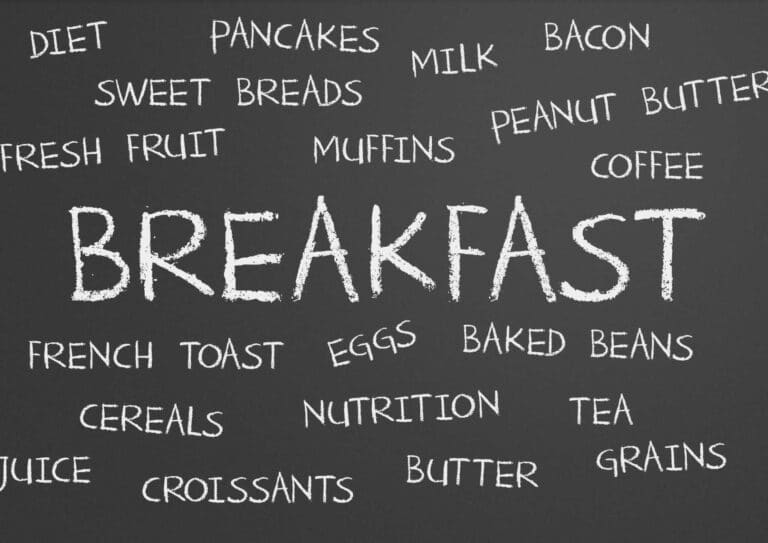
Hormonal and Metabolic Implications of Breakfast Timing
Beyond calories and macros, breakfast timing can influence your hormonal rhythm — particularly cortisol, insulin, and melatonin.
Cortisol Awakening Response
Cortisol naturally spikes in the early morning to help wake you up. Eating a balanced breakfast during this window can help stabilise blood sugar and reduce stress-related cravings later in the day.
Insulin Sensitivity
Insulin sensitivity is highest in the morning and declines throughout the day. This means your body is more efficient at processing carbohydrates earlier — making breakfast an ideal time for nutrient-dense, fibre-rich carbs.
Circadian Rhythm
Your body’s internal clock (circadian rhythm) influences digestion, metabolism, and hormone release. Eating breakfast at a consistent time helps anchor this rhythm, improving sleep quality and metabolic health.
Thyroid and Reproductive Hormones
For women, skipping breakfast can disrupt thyroid function and reproductive hormones — especially if combined with high stress or low calorie intake. I’ve seen this firsthand in clients with irregular cycles, fatigue, and stubborn weight gain.
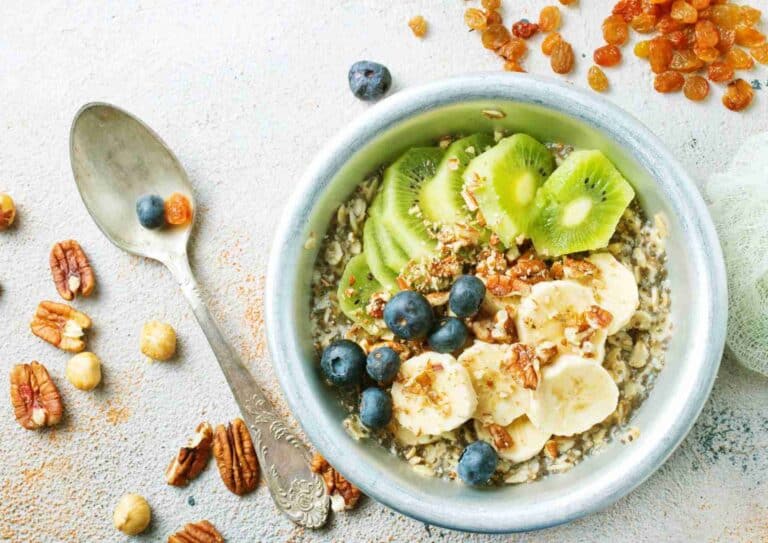
What Makes a Nutritious Breakfast?
If you do eat breakfast, quality matters far more than timing. If breakfast is going to be the most important meal of the day for you, it needs to be built right.
My Formula for a Balanced Breakfast
| Component | Function | Examples |
|---|---|---|
| Protein | Satiety, muscle preservation | Eggs, Greek yoghurt, protein powder |
| Fibre-rich carbs | Gut health, slow digestion | Oats, wholegrain toast, berries |
| Healthy fats | Hormone support, fullness | Avocado, nuts, chia seeds |
| Hydration | Energy, digestion | Water, herbal tea, black coffee |
Avoid sugary cereals, white toast with jam, or fruit juice — they spike blood sugar and leave you hungry by mid-morning.

Personalised Breakfast Strategies
As a clinical and sports nutritionist, I tailor breakfast recommendations to each client’s goals and physiology. Whether breakfast is the most important meal of the day depends entirely on what you need it to do.
For Fat Loss
High protein (25–30g)
Moderate carbs
No added sugars
Examples: protein smoothie, veggie omelette, Greek yoghurt with chia and berries
For Muscle Gain
Higher carbs and protein
Post-training meal within 60 minutes
Examples: oats with whey and banana, scrambled eggs on sourdough
For Busy Professionals
Quick, portable options
Prep-friendly
Examples: overnight oats, boiled eggs with avocado toast, smoothie packs

Common Breakfast Mistakes I See
Even well-intentioned breakfasts can backfire. If breakfast is going to be the most important meal of the day, it needs to be done right. Here are the most frequent issues I troubleshoot with clients:
1. Too Little Protein
A single slice of toast or a piece of fruit won’t cut it. Protein is essential for satiety, muscle preservation, and blood sugar stability. I aim for 25–30g of protein at breakfast for most clients — whether that’s from eggs, Greek yoghurt, or a quality protein powder.
2. Too Much Sugar
Many “healthy” breakfast foods are loaded with sugar — think flavoured yoghurts, granola, cereal bars, and fruit juice. These spike insulin, crash energy levels, and increase cravings mid-morning. Even smoothies can be sugar bombs if not built properly.
3. Skipping Without Strategy
Skipping breakfast isn’t inherently bad — but doing so without a plan often leads to overeating later in the day. I see this frequently in clients who skip breakfast, then binge at night. If you’re skipping breakfast, it should be part of a structured approach with adequate protein and fibre later in the day.
4. Relying on Caffeine Alone
Coffee isn’t breakfast. While black coffee can support alertness and appetite control, relying on caffeine without food can elevate cortisol, disrupt blood sugar, and lead to energy crashes. I always recommend pairing coffee with a balanced meal — or at least a protein-rich snack.
5. Eating Too Late
Pushing breakfast to mid-morning or lunchtime can interfere with circadian rhythm and insulin sensitivity. For clients with hormonal imbalances, fatigue, or poor sleep, I often recommend eating within 60–90 minutes of waking.
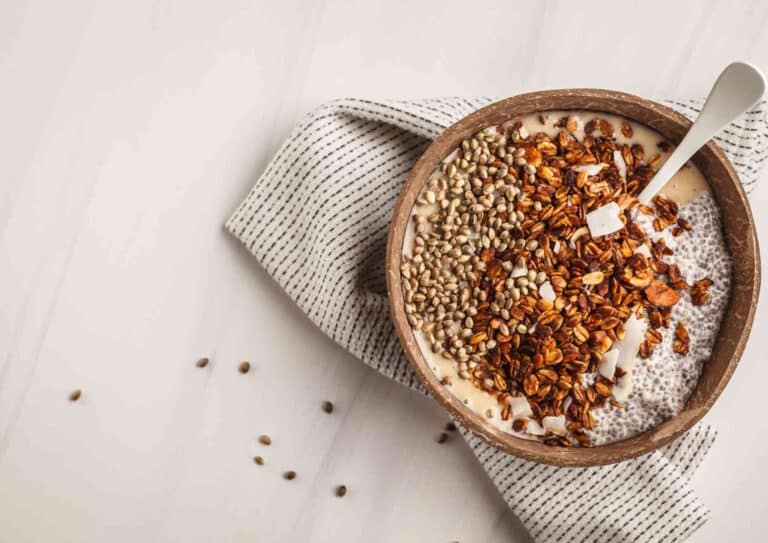
Bibliography
Leidy, H. J., Ortinau, L. C., Douglas, S. M., & Hoertel, H. A. (2013). Beneficial effects of a higher-protein breakfast on the appetitive, hormonal, and neural signals controlling energy intake regulation in overweight/obese, breakfast-skipping, late-adolescent girls. Obesity, 21(1), 55–62.
Jakubowicz, D., Barnea, M., Wainstein, J., & Froy, O. (2013). High caloric intake at breakfast vs. dinner differentially influences weight loss of overweight and obese women. Obesity, 21(12), 2504–2512.
Betts, J. A., Chowdhury, E. A., Gonzalez, J. T., Richardson, J. D., Tsintzas, K., & Thompson, D. (2016). Is breakfast the most important meal of the day? Proceedings of the Nutrition Society, 75(4), 464–474.
Farshchi, H. R., Taylor, M. A., & Macdonald, I. A. (2005). Deleterious effects of omitting breakfast on insulin sensitivity and fasting lipid profiles in healthy lean women. The American Journal of Clinical Nutrition, 81(2), 388–396.
Scheer, F. A., Hilton, M. F., Mantzoros, C. S., & Shea, S. A. (2009). Adverse metabolic and cardiovascular consequences of circadian misalignment. Proceedings of the National Academy of Sciences, 106(11), 4453–4458.
